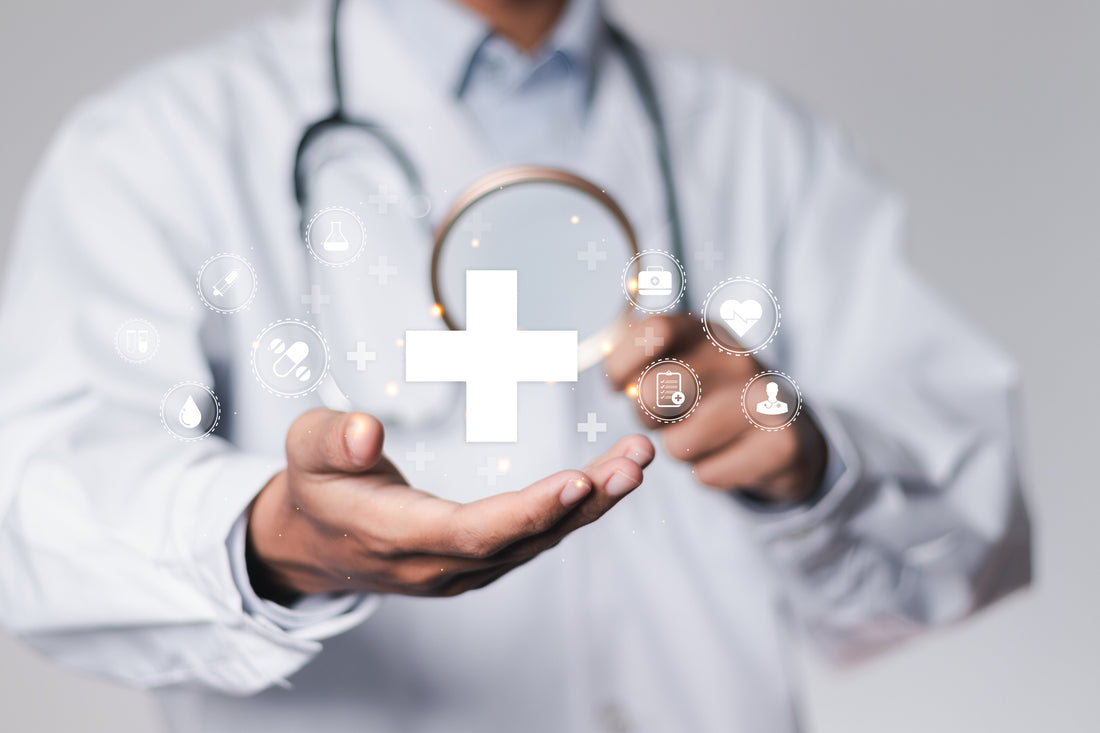
ERP in Healthcare & Life Sciences: Powering Compliance, Care, and Operational Clarity
Keywords: ERP in healthcare, healthcare ERP systems, life sciences ERP, medical supply chain software, ERP for compliance
Introduction: ERP for Systems That Save Lives
In healthcare and life sciences, operational excellence isn’t just about profit margins it’s about lives, outcomes, and public trust.
Hospitals, pharmaceutical companies, and medical research labs all share a common challenge: managing complex operations, strict regulatory frameworks, and sensitive data while delivering at scale.
That’s where Enterprise Resource Planning (ERP) systems step in not just as a financial or inventory tool, but as a mission-critical platform that ensures regulatory compliance, supply chain resilience, and data integrity across clinical and research environments.
Why ERP Matters in Healthcare & Life Sciences
ERP systems bring cohesion to an industry often burdened by fragmented data and siloed processes. With ERP, healthcare providers and life sciences companies gain a centralized view of operations ensuring compliance, cost-efficiency, and patient-centric service.
✅ Regulatory Compliance
Whether it’s HIPAA, FDA 21 CFR Part 11, or GxP standards, ERP helps ensure processes are traceable, auditable, and validated across systems and departments.
✅ Procurement & Inventory Control
ERP tracks medical supplies, pharmaceuticals, and equipment, reducing waste, improving stock visibility, and enabling automated reordering based on real-time demand.
✅ Patient Data & Electronic Health Records (EHR) Integration
ERP systems often interface with EHR platforms to ensure accurate billing, resource allocation, and treatment logistics tied to each patient’s care journey.
✅ Supply Chain Visibility
Especially post-pandemic, healthcare and pharma organizations need end-to-end visibility on global suppliers, cold chain logistics, and stock traceability ERP enables all of this.
✅ Financial Transparency & Resource Planning
Hospitals and research facilities rely on ERP to align grants, insurance claims, labor costs, and capital projects in real time.
Key ERP Features for Healthcare & Life Sciences
- Compliance and audit tracking (GxP, HIPAA, ISO, etc.)
- Serialized inventory and lot tracking
- Procurement and vendor management
- Equipment maintenance scheduling
- Clinical trial resource planning
- Patient billing and financial reconciliation
- Cold chain and temperature-sensitive product management
- Integration with EHR and lab information systems (LIS)
Current Trends Driving ERP in the Sector
GxP Validation Built-In
Pharma and biotech companies are demanding ERP systems with GAMP5-compliant frameworks and audit trail capabilities to meet stringent FDA and EMA requirements.
Cloud ERP for Multi-Site Scalability
Healthcare networks are adopting cloud-based ERP platforms to unify hospitals, research centers, and clinics under a single system.
EHR + ERP = End-to-End Visibility
The next frontier is true integration between clinical systems (like Epic, Cerner) and back-office ERP are enabling smarter care delivery tied to real-time operational data.
Demand Forecasting for Critical Resources
Hospitals use ERP data to predict surges, allocate ICU beds, and manage medical equipment fleets in response to real-time demand.
Industry Snapshot: ERP Use Cases in Action
-
Hospitals use ERP to manage nursing staff schedules, patient billing, PPE inventory, and medication procurement an all in one system.
-
Biotech firms rely on ERP to track active ingredients, control lab supply inventory, and meet FDA audit requirements.
-
Pharmaceutical manufacturers depend on ERP for batch tracking, recall readiness, and quality assurance compliance from production to distribution.
Why ERP Success Is Critical in Healthcare & Life Sciences
ERP failures in this sector don’t just cost money they can delay treatments, impact patient outcomes, or violate regulatory requirements. The right ERP system provides:
- Real-time operational awareness
- Clean, traceable audit logs
- Compliance with national and international laws
- Secure data sharing across departments
- Better resource allocation in care and research environments
“In healthcare, ERP isn’t just a system—it’s a safeguard for care, compliance, and cost control.”
Need help selecting a compliant ERP for your healthcare or life sciences operation?
→ Join The Community
Final Thought
As healthcare and life sciences become more digital, data-driven, and decentralized, ERP plays a central role in keeping operations secure, compliant, and responsive.
From hospitals managing ICU capacity to labs handling clinical trials, ERP brings the structure, insight, and agility needed to serve the mission with better patient outcomes and scientific progress.
